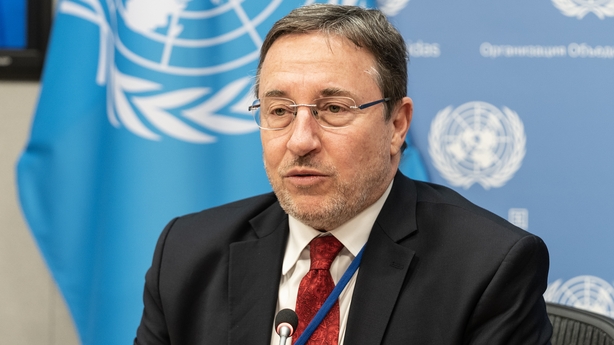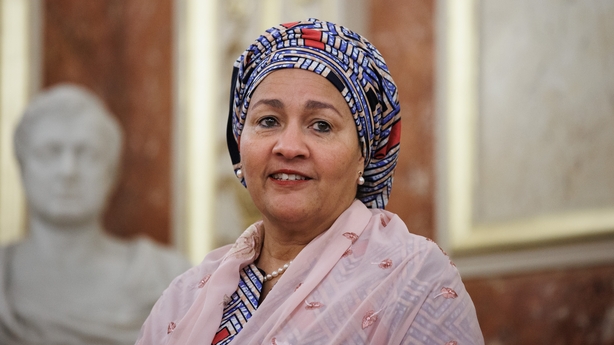The UN is reviewing its presence in Afghanistan following a ban on female aid workers, raising fears it could pull out of the country.
UN agencies had originally been granted an exemption from sweeping restrictions on women's rights imposed by the Taliban.
But in early April, the de facto authorities told the UN mission that their Afghan employees were no longer allowed to report for work.
The UN called the ban "unlawful under international law and the UN Charter" and responded by instructing all staff, male and female, to work from home.
It employs 3,300 Afghans, including 600 women.
"This is a violation of the inalienable fundamental human rights of women," a spokesperson for the United Nations Secretary-General Antonio Guterres said in a statement.
The UN mission in Afghanistan then announced a review of its operations, which is due to report by 4 May.
But the UN is facing a dilemma about whether to stay and replace female workers with men or to withdraw, leaving behind an estimated 28 million people in dire need of humanitarian assistance.
The head of UNDP Achim Steiner said yesterday that the UN’s fundamental principles were non-negotiable.

He added that the UN was ready to take the "heart-breaking" decision to pull out next month, if the Taliban failed to reverse the ban.
But a spokesperson for the UN Secretary-General told reporters that it remained committed to delivering for the people of Afghanistan.
"We are doing everything we can to see how we can continue," Stephane Dujarric told RTÉ News.
Aside from the principles at stake, UN officials say they have told the Taliban that delivering humanitarian assistance in Afghanistan was impossible without female aid-workers.
Men are not permitted to have contact with women, unless a male guardian is present.
Meanwhile, humanitarian conditions across the country are worsening as the economy faces collapse.
Ramiz Alakbarov, the UN Deputy Special Representative and Humanitarian Coordinator for Afghanistan, has called the situation in the country "the world’s largest humanitarian crisis".
Afghanistan’s GDP declined by 35%, while the cost of living rose, he told a news conference at UN headquarters in February.
The price of a basic food basket went up by a third while unemployment soared.
But with the Taliban cracking down on women’s rights, foreign donors have been unwilling to send funds to Afghanistan.
A UN appeal for $4.6 billion has received just over 5% of it so far.
But UN officials warned countries not to turn their back on the Afghan people, amid competing demands across the world.
"It’s easy for this to be forgotten," said UN Deputy Secretary-General, Amina Mohammed.

Speaking at an event at Princeton University on Monday, she also said that the Taliban’s desire for international recognition should be used as leverage to put pressure on them.
But she added that the international community needed to talk about engaging with the Taliban.
"We hope that we'll find those baby steps to put us back on the pathway to recognition [of the Taliban] - a principled recognition, in other words, there are conditions," Ms Mohammed said.
"That discussion has to happen," she added.







